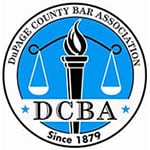Your Rights
Q: I Was Pulled Over For An Improper Turn And Asked If I Had Anything Illegal In The Car. When I Said No, They Threatened To Get A Drug Dog. Can They Do That?
The answer depends on how long they would have to continue to detain you before they could get a canine unit on the scene. Case law requires reasonable suspicion and prohibits the police from detaining a motorist for an unreasonable amount of time past the reason for the initial stop. If you are unsure, you should obtain legal counsel.
Q: I Was Pulled Over For An Improper Lane Change And The Officer Told Me He Thought I Had Been Drinking. When I Denied It, He Told Me To Take Some Tests To Prove It. I Refused. The Officer Told Me I Wouldn’t Have Been Arrested If I Had Been Cooperative.
You have the absolute right to refuse to take any field sobriety test, and the police are not required to advise you of that fact. It is routine for the police to encourage or even demand a motorist to perform field sobriety tests. You may very well have been arrested anyway notwithstanding your cooperation with the officer’s request. In fact, in having refused, you may have avoided creating additional evidence for the prosecution to use in its case against you. Consult with an attorney to determine how significant the refusal is to your specific case.
Q: Why Was I Arrested For Domestic Battery If My boyfriend Refused To Sign The Complaint?
Most police departments have standard operating procedures that include making arrests on all domestic violence calls when a physical injury is observed. A physical injury can be something as minor as a scratch or a red mark. The police officer may not have had any choice in whether or not to place you under arrest. Thousands of Illinois residents are arrested each year for domestic battery. You should seek legal advice about the sufficiency of the charges against you because by law you cannot be granted court supervision on the offense of domestic battery.
Q: If My Girlfriend Signed A Complaint Against Me For Domestic Battery, Can She Still Drop The Charges?
Because the alleged victim of a crime is not technically a party to the criminal case, he or she cannot drop the charges. The Law Offices of Charles Rohde & Pierina Infelise, P.C., can advise you on how to navigate domestic violence courtroom procedure. It is quite common for victims in domestic violence courtrooms to oppose the prosecution of the defendant, and prosecutors expect that. Consequently, people identified by the police as victims of domestic battery are often subpoenaed to appear in court even in misdemeanor cases. An attorney can assess whether a victim has been properly served with the subpoena and what ramifications if any stem from the subpoena that issued.
Q: The Police Arrested Me Because I Hit My Son. Is That Domestic Battery?
While the definition of domestic battery is physical contact between household members that either causes bodily harm or is insulting or provoking in nature, Illinois case law specifically excludes reasonable corporal punishment from the definition of domestic battery. Your constitutional right to privacy protects you in the exercise of reasonable corporal punishment. The appellate courts have found contact that leaves bruises or welts, punishment administered by an instrument, such as a board or a belt, or contact that is otherwise excessive to be unreasonable. You should consult with an attorney about your charges.
Q: What’s The Difference Between A “Bodily Harm” Battery And An “Insulting And Provoking” Battery?
In Illinois, a battery is ordinarily charged as “causing bodily harm” when any physical injury is present. Physical contact that is insulting or provoking in nature need not rise to that level. For example, poking another person with your finger could be considered a battery. There are distinctions in sentencing based on which section of the statute you are charged with. An attorney will be sure that the prosecution can prove the element of causing bodily harm beyond a reasonable doubt.
Q: I Was Sentenced To Court Supervision On A Battery When I Was Young. Why Hasn’t It Come Off My Record?
Contrary to popular belief, court supervision never just “comes off” of your record. It is part of your record. It reflects that you were found guilty of an offense but that a judgment did not enter on the conviction. Although there are many benefits to having court supervision, you must be proactive to remove it from your record. An attorney can file a petition to expunge, and in most cases, you will not even have to appear in court. Remember that if you are arrested and convicted for any other offense, your right to expunge will be denied. If you plan to expunge, it might be in your best interest not to wait too long.





